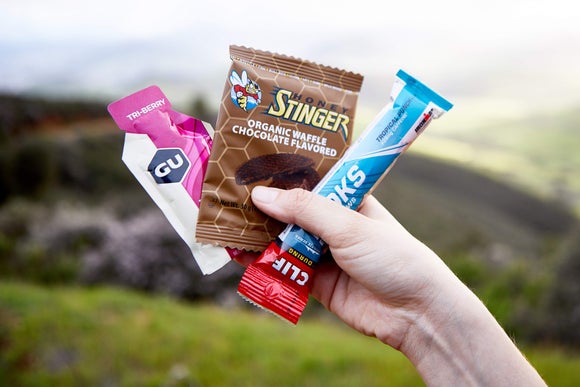How to Fuel for a Marathon
What to Eat Before, During, and After Your Next Marathon

Training for a marathon is a major commitment so if you’re planning on completing one, you’ve likely put a great deal of effort into getting ready for the big day. Increasing your mileage, planning race-day logistics and making sure you’re equipped with the right footwear are all important parts of your preparation. With so much to consider, it can be easy to overlook the smaller, yet equally important things like nutrition. How and what you eat before, during and after your race can play a huge role in your success in the event.
During long races, our bodies rely on both stored energy and what we consume during a race for fuel. Generally, we do not have enough readily available fuel stored in our bodies to get us through a marathon, so it is essential to provide additional energy throughout the race in order to optimise performance.
When planning your nutrition in the lead up to the race, the most important thing to keep in mind is that significant dietary changes should always be avoided immediately before an event. You do not want to be experimenting with new foods during this time. Use these guidelines as a way to refine your current diet and ensure that you are as prepared as possible.

The Week Before the Marathon
The week before your marathon is a critical time to focus on eating a healthy and consistent diet. This is essential for your immune system as well as your energy levels. You should start fuelling at least a week before your race to avoid energy deficits.
Also read: What to Eat Before a Race
|
The Day Before the Marathon
On the day before your event, make sure your digestive system is ready to take on the upcoming race. Now is the time to stick to easily digestible foods and avoid anything that might irritate your stomach. This is also the time to focus on hydrating your body in anticipation of the race.
|

The Day of the Race
The day has arrived! You may be feeling the nerves but try not to let this take priority over your stomach, this is not the time to skip a meal. Ensure you eat a nutritious, easily digestible breakfast and continue fuelling your body right up until the race.
Individual hydration and fuelling guidelines will vary, as these are based on individual sweat rate, level of fitness and body weight. Race day is not the time to try anything that you have not practiced in training.
|
During the Race
Consuming an adequate amount of carbohydrates during the race will help you go the distance physically and also give your brain the fuel it needs to think clearly and keep you on a positive track during the race.
|
After the Race
The food you eat after a marathon can be equally as important as what you eat before. Ensuring proper nutrition for recovery will help you perform even better during your next workout or race.
|

